|
Pope Francis would be one of the influential Catholic voices in recent years reiterating the need to step outside our known world, and reframe it through the eyes of those on the margins of society. It's an idea that lies at the heart of the Passionist movement. Nicholas Postlethwaite from the Passionists, and post-evangelical poet David Benjamin Blower talk about the places they've lived - and while admittedly speaking from their own experience, they discuss their attempts to adopt a new narrative, where they themselves are not at the center. They talk about how that's changed them, as well as discussing the politics involved in self-awareness, privilege and ideology.
1 Comment
The new website of St. Paul of the Cross province is full of good news. The website coincides with the announcement of a major project that presents a creative and exciting movement for the province and its retreat center in Jamaica, NY. On February 26th, ground was broken for Thomas Berry Place. As the Passionists celebrate our 300th Anniversary year, the province reimagined the former Bishop Molloy Retreat House into a new Passionist Center that fulfills their re-focused mission, creates new partnerships, and offers new, mission-based utilization of the renovated physical spaces to meet the needs of our greater community. See more about Thomas Berry Place and the capital plan to fund it here. You can view the groundbreaking ceremony on that page as well.  Walking with the Crucified - Thomas Berry Place will include the Reconnect Brooklyn ministries founded in Brooklyn to engage young people looking for a positive life change, the program creates social enterprise business to employ youth and teach life skills as well as assisting with next steps in life. Reconnect now resides and is expanding into our Jamaica, NY retreat house located in the Passionist’s Thomas Berry Place in order to deepen the impact on young people’s lives. Here they will not only continue to expand their external business endeavors such as their printing and graphics shop, reopen the Reconnect Bakery but also be part of "fabric" of the renewed retreat house. Here they will tend to the organic and hydroponic gardens, help maintain the house and grounds and be part of live retreats.  Justice for the Earth - St. Gabriel’s Church in Toronto is designed on the principles of Fr. Thomas Berry, C.P. It was constructed in 2006, the church is the first in Canada to receive LEED Gold certification. The church has also created a community garden that supplies other ministries with fresh produce. The Passionists in Toronto are also engaging in a Synodality process that will help define and grow the mission and work of the Passionist Family there, with focus on Laudato Si' and integral ecology. 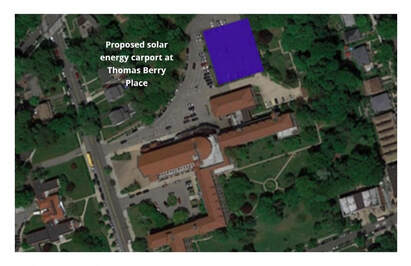 Passionists embrace solar power This fifth anniversary year of Laudato Si’ has been a time of reflection and accountability. Father Jim O’Shea, CP, provincial for the Passionists of the St. Paul of the Cross Province, and Page Gravely of Catholic Energies, recount their collaboration to plan and implement a series of major solar power installations at Passionist properties in the continental United States and Puerto Rico. Fr. Jim explains, “Our legacy will include the visual witness that we tried to do something about climate change. The Passionists have now created their own story about acting on our beliefs, a story we hope will only motivate others as well.” Read the full story here. Click here if you are interested in learning more about solar power and Catholic Energies, a program of the Catholic Climate Covenant that works with Catholic organizations to implement solar energy. Nicholas Postlethwaite CP and Austin Smith CP moved to Toxteth, Liverpool, in 1971 as part of a wider Passionist movement to Britain’s inner cities. Their mission was to be in solidarity with the Crucified among us, suffering injustice and deprivation and to "join them in the struggle for life and justice."
Nicholas concludes these powerful narratives this way: "As state and church worry about whether “the centre” is holding – or are things “falling apart” – perhaps there are hints and pointers in the Passionist Inner City Mission which may encourage others to step outside safety zones and rediscover the wonder and beauty at the heart of human mystery. I began this article with an Austin quotation: I conclude it with another from his book Mersey Vespers, page 148: 'Liverpool had this impact on me. It did not offer a new form of ministry. Rather I was offered a new beginning to understand the radical Gospel of Jesus of Nazareth.'” Read Part I of their story here Read Part II here "...One of the dangers of me doing this work is that folks want to say things like “How great that you are doing that…” But it’s not great that I do it. It’s sad we have created these conditions. And if I can in any way be of service to correct some little part of it..." 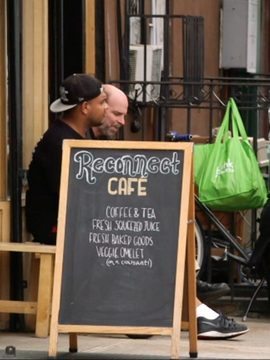 Reconnect "began on a violence-drenched corner" of the Bedford-Stuyvesant neighborhood of Brooklyn, New . Its goal is to create "an entry level economy for young men looking to change the course of their lives. Our mission is to offer employment that leads to renewed engagement of education, training and commitment to community leadership and service." Fr. Jim O'Shea is the founder and director of Reconnect Brooklyn, a series of neighborhood-operated businesses that includes a bakery, cafe and graphics shop. Reconnect "began on a violence-drenched corner" of the Bedford-Stuyvesant neighborhood of Brooklyn, New . Its goal is to create "an entry-level economy for young men looking to change the course of their lives. Our mission is to offer employment that leads to renewed engagement of education, training and commitment to community leadership and service." Speaking with David Horvath (PSN) by phone from outside Reconnect Café, Brooklyn, New York More information: http://reconnectbrooklyn.org Jim, how much day-to-day involvement do you have in the Reconnect Brooklyn businesses? We have managers for the businesses. All the managers are younger people, still learning -- so a lot of time is spent to develop their skills managing other workers, plus time with the education project, fundraising,etc. It makes for full days. How long has the overall project been going? It was Incorporated in 2010. Whose idea was the Reconnect project? The projects came from my physical presence in the neighborhoods for decades and facing the persistent problem of young people who are not connected with anything positive and the consequences of that. Also the reality that these young people often also didn’t connect to traditional programs. So we tried to be as grass roots and basic as possible to confront these issues. How much of the success of the projects is reflected in your personal commitment to mentoring and spending time with your managers and workers? I think the basic principle behind it is the relationships. Part of the issues in these communities is the tearing apart of relationships. We sometimes fill it with programs which are good, but by nature temporary and impersonal in many ways. And some of the healing we see here is because there are some people who stay with you long enough to get a sense of your own efficacy and have some capacity to do things… and it’s in your neighborhood. So it’s there, whether you succeed or fail, whether it’s months or years from now – that there is some enduring strength of relationships that are faithful to one another. It’s hard to describe to a funder because there is this idea that we try to fix things in two months or something. Even from a justice perspective of what we have done to destroy communities for centuries and that now we’re going to fix peoples’ lives in a month with some type of program. Obviously it is lot deeper than that and the healing takes longer, a longer term project. If you can use businesses that generate income and capital, and figure out how to build on those in the community, pull resources together, but recognizing that there are always going to be bumps. I particularly like the article [in the Passionist newsletter Passio] about “Re-Formed”, two sisters from the black community in Liverpool 8 who have re-bounded from their own experience of prison to work with gangs in inner city Liverpool. I’m proud that by supporting their work, we are able to continue the legacy of Austin Smith CP, the first Passionist I heard of.
It was back in 1989. I was living in Liverpool 8 and volunteering at a couple of local charities working with people with mental health problems. |
Categories
All
|

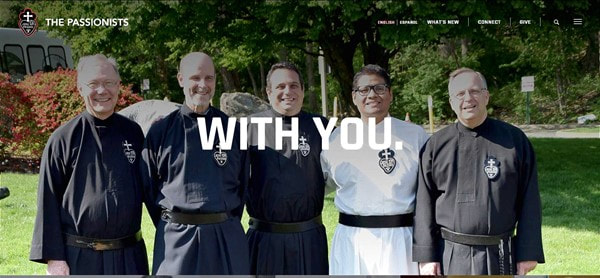
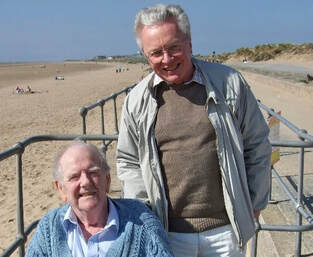
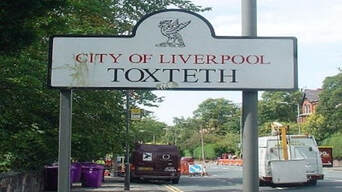
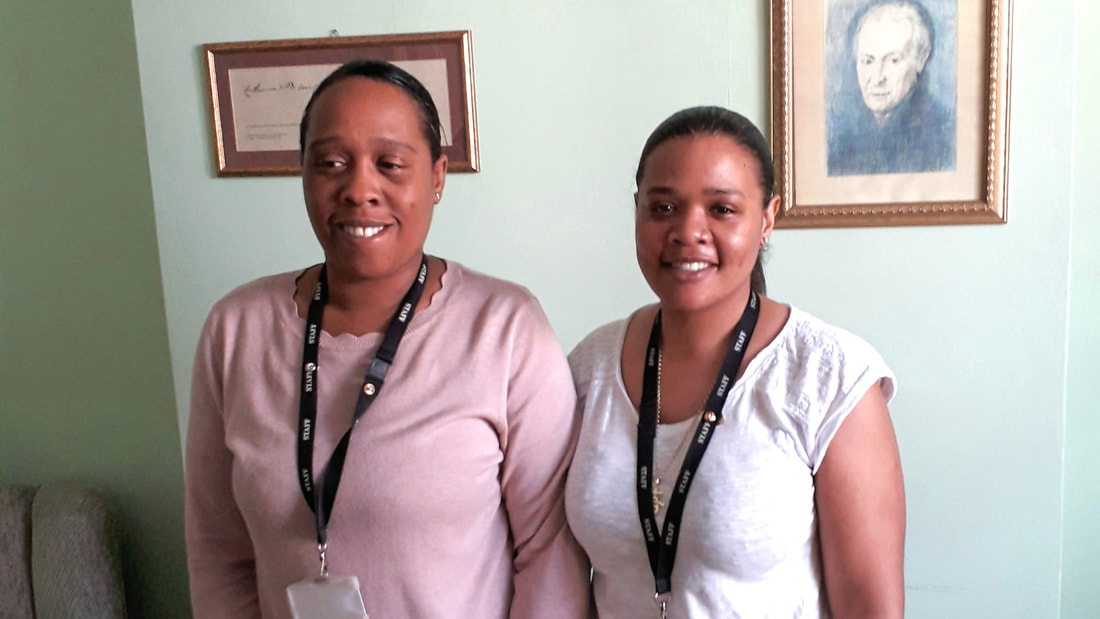
 RSS Feed
RSS Feed